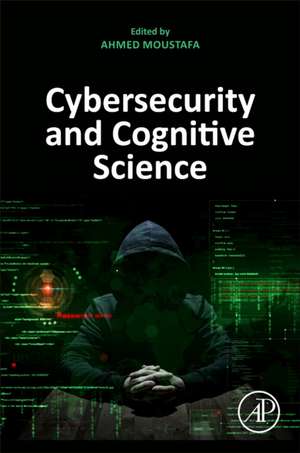Cybersecurity and Cognitive Science
Editat de Ahmed Moustafaen Limba Engleză Paperback – 31 mai 2022
- Outlines cognitive modeling within cybersecurity problems
- Reviews the connection between intrusion detection systems and human psychology
- Discusses various cognitive strategies for enhancing cybersecurity
- Summarizes the cognitive skills of efficient network security agents, including the role of situational awareness
Preț: 671.45 lei
Preț vechi: 878.30 lei
-24% Nou
Puncte Express: 1007
Preț estimativ în valută:
128.49€ • 133.28$ • 107.14£
128.49€ • 133.28$ • 107.14£
Carte tipărită la comandă
Livrare economică 20 martie-03 aprilie
Preluare comenzi: 021 569.72.76
Specificații
ISBN-13: 9780323905701
ISBN-10: 0323905706
Pagini: 400
Dimensiuni: 152 x 229 x 26 mm
Greutate: 0.53 kg
Editura: ELSEVIER SCIENCE
ISBN-10: 0323905706
Pagini: 400
Dimensiuni: 152 x 229 x 26 mm
Greutate: 0.53 kg
Editura: ELSEVIER SCIENCE
Cuprins
Part I: Social Engineering, Security, and Cyber Attacks
1. Social Engineering Attacks and Defenses in the Physical World vs. Cyberspace: A Contrast Study
2. A Dual Integrated Dynamic Intrusion Detection System (DID-IDS) for Protection Against Network and Social Engineering Attacks
3. Working from Home Users at Risk of the COVID-19 Ransomware Attacks
4. Individual Differences in Cyber Security Behavior Using Personality Based Models to Predict Susceptibility to Sextortion Attacks
5. The Development of a Logic for Capturing Mismorphisms: Deconstructing Security and Privacy Issues
Part II: Behavioral Studies of Cybersecurity
6. Are you Anonymous? Social Psychological Processes of Hacking Groups
7. On the Relation Between Hacking and Autism or Autistic Traits: A Systematic Review of the Scientific Evidence
8. An Introduction to Cyberbullying
9. The Impact of Cyberbullying Across the Lifespan
10. Cyber Situational Awareness Issues and Challenges
11. Development and Application of the Information Security Core Human Error Causes (IS-CHEC) Technique
Part III: Machine Learning and Modeling Applications to Cybersecurity
12. Machine Learning for the Security of Healthcare Systems Based on Internet of Things and Edge Computing?
13. Lying Trolls: Detecting Deception and Text-Based Disinformation Using Machine Learning
14. Modeling the Effects of Network Size in a Deception Game Involving Honeypots
15. Computational Modeling of Decisions in Cyber-Security Games in the Presence or Absence of Interdependence Information
1. Social Engineering Attacks and Defenses in the Physical World vs. Cyberspace: A Contrast Study
2. A Dual Integrated Dynamic Intrusion Detection System (DID-IDS) for Protection Against Network and Social Engineering Attacks
3. Working from Home Users at Risk of the COVID-19 Ransomware Attacks
4. Individual Differences in Cyber Security Behavior Using Personality Based Models to Predict Susceptibility to Sextortion Attacks
5. The Development of a Logic for Capturing Mismorphisms: Deconstructing Security and Privacy Issues
Part II: Behavioral Studies of Cybersecurity
6. Are you Anonymous? Social Psychological Processes of Hacking Groups
7. On the Relation Between Hacking and Autism or Autistic Traits: A Systematic Review of the Scientific Evidence
8. An Introduction to Cyberbullying
9. The Impact of Cyberbullying Across the Lifespan
10. Cyber Situational Awareness Issues and Challenges
11. Development and Application of the Information Security Core Human Error Causes (IS-CHEC) Technique
Part III: Machine Learning and Modeling Applications to Cybersecurity
12. Machine Learning for the Security of Healthcare Systems Based on Internet of Things and Edge Computing?
13. Lying Trolls: Detecting Deception and Text-Based Disinformation Using Machine Learning
14. Modeling the Effects of Network Size in a Deception Game Involving Honeypots
15. Computational Modeling of Decisions in Cyber-Security Games in the Presence or Absence of Interdependence Information
